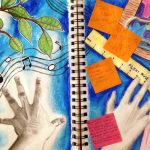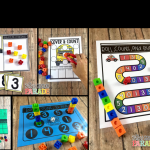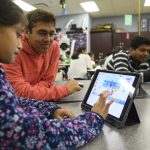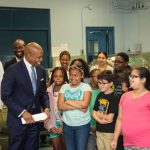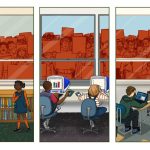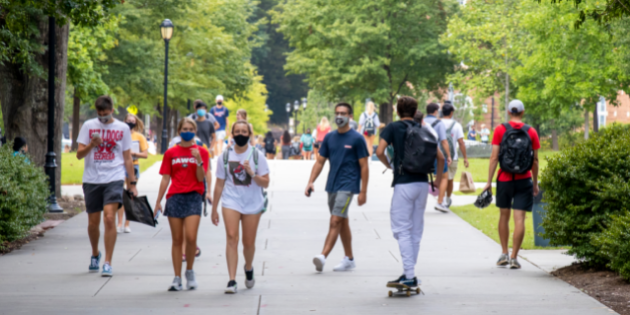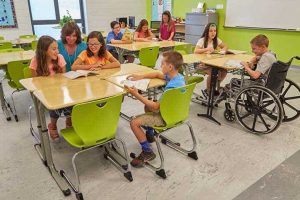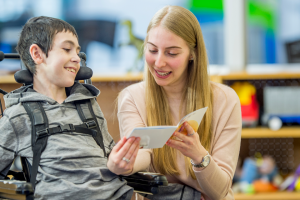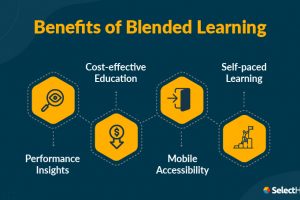Introduction: The Dynamics of Educational Curricula
The Heart of Education
Educational curricula form the bedrock of the teaching and learning experience in schools. They define what students learn, how they learn it, and why it matters. As Nelson Mandela once said, “Education is the most powerful weapon which you can use to change the world.” This article explores the ever-evolving landscape of school curriculum, shedding light on the forces driving change, the challenges faced, and the innovative approaches educators are taking.
The Forces Shaping Curriculum Development
Globalization and the Digital Age
A Connected World
In an increasingly interconnected world, curriculum development is influenced by global trends and digital technologies. Students today must be prepared to navigate a globalized workforce and a digital landscape that’s constantly evolving.
Digital Literacy as a Core Skill
The digital age demands digital literacy as a core skill. Curriculum developers are integrating digital skills into subjects across the board, ensuring students are equipped to thrive in an increasingly technology-driven world.
Diversity and Inclusivity
A Diverse Society
Diversity is a defining characteristic of modern societies. Schools must reflect this diversity in their curricula, addressing issues of race, gender, culture, and more to foster inclusion and understanding.
Inclusivity as a Moral Imperative
Inclusivity is not just a trend; it’s a moral imperative. Curriculum designers are working to create materials and lesson plans that represent diverse perspectives and experiences.
Changing Pedagogical Approaches*
From Teacher-Centered to Student-Centered Learning
Traditional teacher-centered models are giving way to student-centered approaches. This shift emphasizes active learning, critical thinking, and problem-solving skills.
Project-Based Learning and Real-World Application
Project-based learning is gaining popularity as it allows students to apply their knowledge to real-world problems. It promotes deeper understanding and engagement.
Challenges in Curriculum Development
Standardization vs. Personalization*
Balancing Consistency and Flexibility
The tension between standardized curricula and personalized learning paths is a significant challenge. Striking the right balance is critical.
Individualized Learning Plans
Developing individualized learning plans for each student is resource-intensive, making it difficult to implement on a large scale.
Keeping Pace with Rapid Change*
The Challenge of Technological Advancement
Technology evolves rapidly, requiring educators to continually update curricula to ensure relevance.
Preparing Students for Jobs that Don’t Exist Yet
Students must be prepared for jobs that may not exist during their school years. Curriculum developers must anticipate future needs.
Innovative Approaches to Curriculum Development
Competency-Based Education*
Measuring Mastery
Competency-based education focuses on students mastering specific skills and knowledge. It allows students to progress at their own pace.
Flexibility and Customization
This approach offers flexibility and customization, aligning with the diverse needs of students.
Interdisciplinary Learning*
Breaking Down Subject Silos
Interdisciplinary learning breaks down traditional subject silos, fostering connections between different areas of knowledge. It encourages holistic thinking.
Real-World Problem Solving
Interdisciplinary projects often involve solving real-world problems, providing practical experience.
Incorporating Culturally Relevant Content*
Reflecting Student Backgrounds
Incorporating culturally relevant content ensures that students see themselves in the curriculum. It validates their experiences and perspectives.
Promoting Global Citizenship
This approach also promotes global citizenship, as students learn about cultures and societies beyond their own.
Real-World Examples of Curriculum Innovation
Finland’s Educational Model*
Finland’s educational model is often cited as a benchmark of success. It emphasizes student-centered learning, shorter school days, and minimal standardized testing, allowing for more flexible and innovative curriculum development.
Singapore’s Math Curriculum*
Singapore’s math curriculum is renowned for its effectiveness. It focuses on problem-solving and critical thinking, with an emphasis on mastery before moving on to new topics.
The Montessori Method*
The Montessori method, developed by Dr. Maria Montessori, is a student-centered approach that emphasizes self-directed learning and hands-on exploration. It has gained popularity worldwide.
The Future of Curriculum Development
Personalized Learning Through AI*
Artificial intelligence (AI) has the potential to revolutionize personalized learning. AI can analyze student data and adapt lessons in real time to meet individual needs.
Global Collaboration and Exchange*
Global collaboration and exchange programs will continue to expand, giving students the opportunity to learn from peers around the world.
Ethical Considerations in Technology Integration*
As technology plays a more prominent role in education, ethical considerations, such as data privacy and algorithm bias, will need to be addressed.
Conclusion: Navigating the Ever-Changing Landscape
In conclusion, the landscape of school curriculum is in constant flux, shaped by global trends, technological advances, and the imperative of inclusivity. Educators and curriculum developers face both challenges and opportunities as they seek to prepare students for a rapidly changing world. As John Dewey once stated, “If we teach today as we taught yesterday, we rob our children of tomorrow.” Embracing innovation and flexibility in curriculum development is essential to empower students with the knowledge and skills they need to succeed in the ever-evolving landscape of the 21st century.

